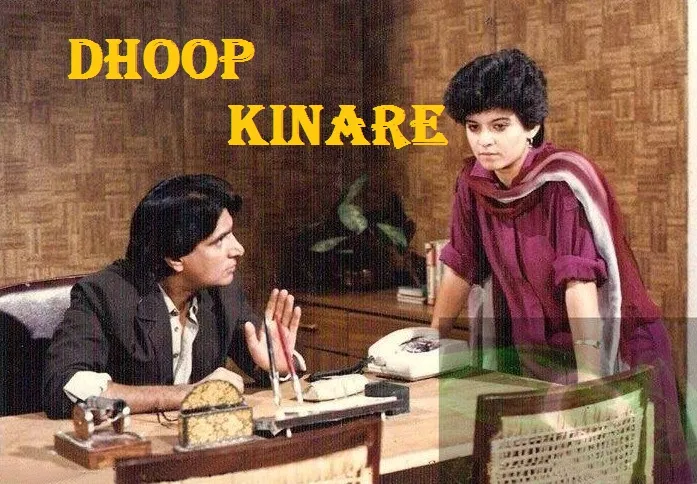PTV’s golden age
Maybe it’s time to revisit these plays and relive the golden years of PTV
It was an interesting observation by my senior colleague, Associate Dean Dr Huma Baqai, who commented to colleagues, all of whom are locked down in their houses and have run out of options for entertainment, how shallow the TV serials of today seem to be.In my days as an avid TV viewer (when I was in secondary school and then college), one would wait for the evening TV play (also called dramas) every evening. Each centre would have a day to broadcast its production — one day it would be Lahore, another day Karachi and so on.
I didn’t realise how much they impacted our lives when two decades on, as I taught my students at university, I realised some names would be more popular. For example, I would have at least four Sana’s in my class. Then it struck me — these names came from PTV plays! Who can forget the feisty Sana Murad of Ankahi fame?
Like many others, one of my favourite TV dramas was Fifty Fifty, a collection of humourous skits produced by PTV Karachi which lampooned policemen, customs officials and even television announcers. Some of the skits were funny, others were not. But on the whole, they brought a smile on most faces.
I remember the competition between PTV Lahore and Karachi on who produced the better play. Who can forget the ever popular Andhera Ujala which would show the police at work? Qavi Khan was the ever-honest SP who would set things right in the end.
In my opinion, Qavi Khan’s performance in long play Wadi-e-Purkhar, was one of his best. It was the ultimate guilt-trip for people of my age and would put the Indian movie Baghban to shame. In the play, an old couple lives alone in a large house as all their children move abroad one by one. This is the story of how they cope till the very end.
If there was a favourite actor, that would undoubtedly be Khalida Riyasat, may she rest in peace. Then there was Uzma Gilani, Navid Shahzad and of course Marina Khan. Strong women playing strong positive characters. Not like most plays today.
There were some bold productions as well. One recalls Deewarain. Produced by Haroon Rind and written by Abdul Qadir Junejo, the play was produced in 1987 and exposed the repressive landlord dominated society in parts of Sindh.
In 2015, writer Bisma Ahmad listed 10 PTV plays to watch. Her list includes Khuda ki Basti (1969). The play was telecast twice (the second time in 1974 at the insistence of ZA Bhutto as it was his favorite play!). The second is Ankahi (1982). Known for its witty dialogues and the strong, endearing, candid character of Sana Murad, Ankahi was quick to reach cult status. The third is Dhoop Kinarey (1987), written and directed by two of the most acclaimed women in TV, Haseena Moin and Sahira Kazmi.
The fourth recommendation is Ainak Wala Jin (1993). The first of its kind, it was a mix of real life, fantasy and science fiction. The fifth is Tanhaiyan (1985). For the first time we saw two young women (sisters) taking up the traditional role of men — working jobs, running businesses, earning money and making a living. The sixth is Alpha Bravo Charlie (1998). Directed by Shoaib Mansoor, it follows the lives of three young, happy-go-lucky friends who have just joined the army, and teaches the very important lesson of leading a purposeful and passionate life. The seventh is Alif Noon (1971), a story of two friends who are complete opposites.
The eighth is Taleem-e-Balighan (1956). The beauty of this political satire and its brilliant script is that it’s timeless. The ninth recommendation is Parchaiyan (1976) which was an adaption of the book, Portrait of a Lady by Henry James. With Haseena Moin’s magic translation and script adaption, the drama is famous even today for its dialogues. Finally, Waris (1980). Considered one of the most realistic depictions of Pakistan, Waris is a story of a feudal family, their struggles to maintain their land and wealth, and the inter-family differences and tussles that lead to their downfall.
Maybe it’s time to revisit these plays and relive the golden years of PTV. If nothing else, it will bring a smile on your faces in these otherwise depressing days.
Published in The Express Tribune, April 6th, 2020.
Like Opinion & Editorial on Facebook, follow @ETOpEd on Twitter to receive all updates on all our daily pieces.


COMMENTS
Comments are moderated and generally will be posted if they are on-topic and not abusive.
For more information, please see our Comments FAQ